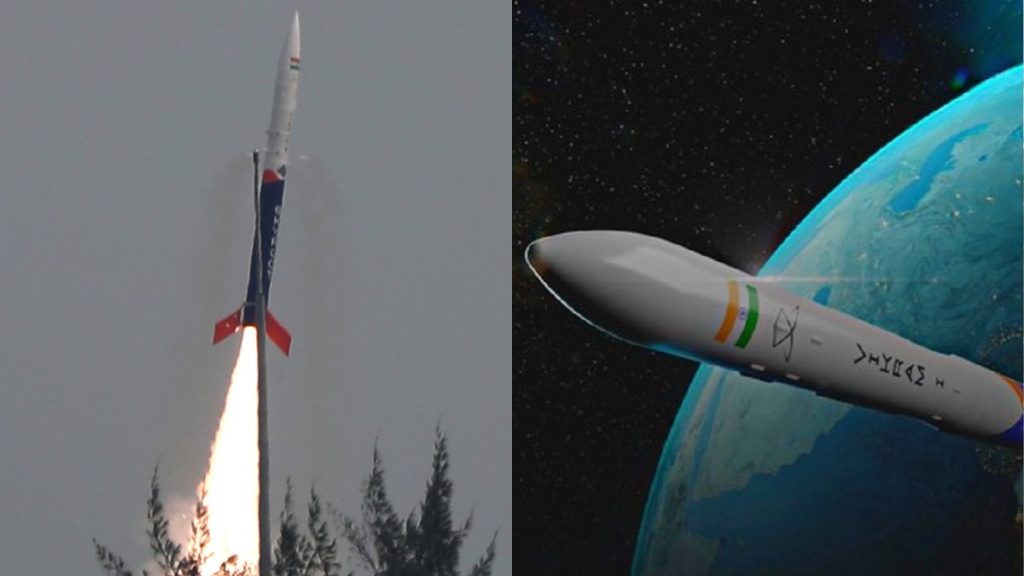On Friday, India’s first privately developed launch vehicle, Vikram-S, took off from the Indian Space Research Organization’s (ISRO) Sriharikota spaceport (November 18). The mission, dubbed Prarambh, or “the Beginning,” is India’s first venture into the lucrative space launch market. The launch time was 11.30 a.m. IST.

Skyroot Aerospace, a Hyderabad-based firm founded in 2018, developed the rocket. It is known as Vikram-S. It is named after the founder of India’s space programme, Vikram Sarabhai.
“The Vikram-S rocket is a single-stage sub-orbital launch vehicle that will carry three customer payloads and assist in testing and validating technologies in the Vikram series space launch vehicles,” said Naga Bharath Daka, the company’s COO and co-founder.
Three Vikram rockets are being developed by the company, and they will run on a variety of solid and cryogenic fuels. One of the few launch vehicles with a carbon composite core structure is the Vikram series of rockets. The vehicle’s spin stability thrusters were created using 3D printing.
The launch vehicle’s engine bears the former president Dr. A P J Abdul Kalam’s name. One of the most important things the business will watch for during the Vikram-S flight is how the “Kalam-80” performs.
Mission Three customer satellites will be transported in a sub-orbital flight by Vikram-S over Prarambh. The spacecraft moves slower than orbital velocity during a sub-orbital mission, which implies it is fast enough to reach space but not fast enough to maintain an orbit around the Earth. Jeff Bezos and Richard Branson, two businessmen, have flown to the furthest reaches of space on suborbital flights.
Three satellites, including the FunSat by SpaceKidz India, which was partially created by students, will be carried by Vikram-S. Between 290 kg and 560 kg of payloads can be carried by the Vikram rockets into sun-synchronous polar orbits.
The workhorse of India, the PSLV, can transport up to 1,750 kg to such an orbit. The recently created Small Satellite Launch Vehicle (SSLV), designed to launch smaller commercial satellites, has a maximum payload capacity of 300 kg.

